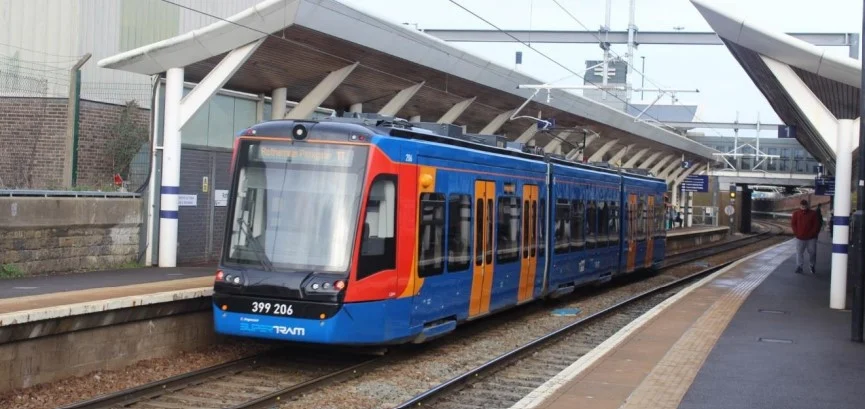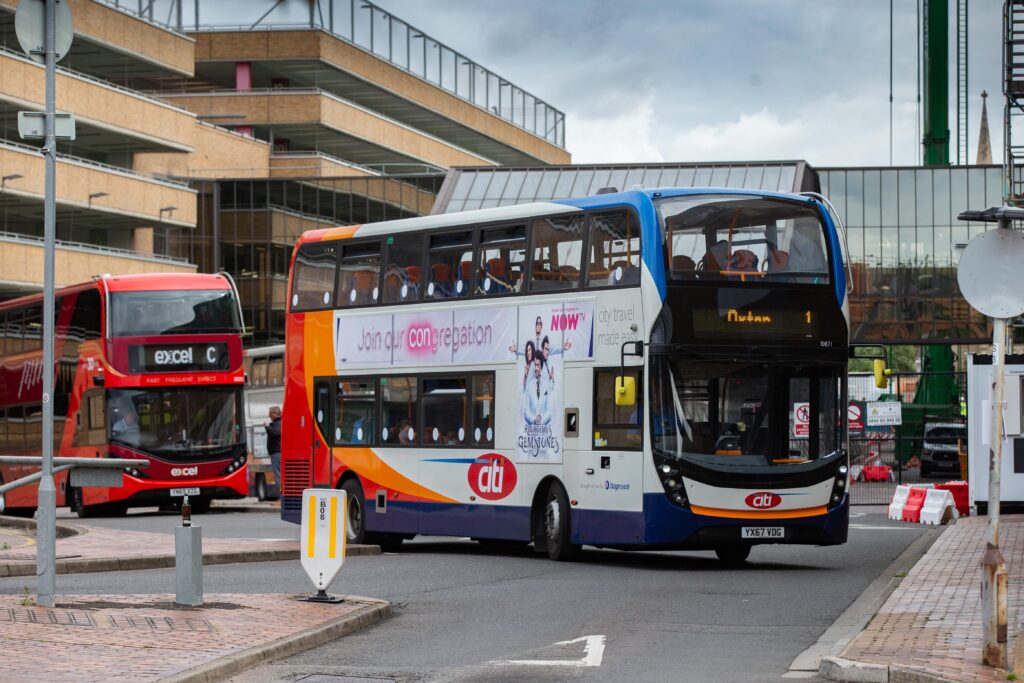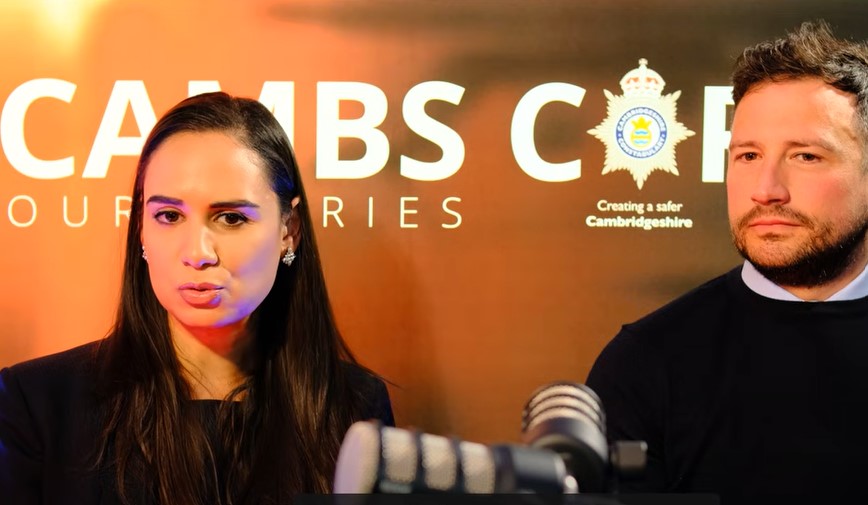Network Rail is to get £300,000 from Cambridgeshire and Peterborough Combined Authority (CAPCA) to look at re-opening the Wisbech to March rail line with the emphasis on a light rail option.
Although CAPCA’s transport committee agreed on Tuesday for £80,000 towards the new report, it will be in addition to £230,000 already allocated.
The extra £10,000 is for “any additional engagement with strategic stakeholders”.
The decision effectively side-lines an option that would have involved CAPCA continuing to “promote and lobby for heavy rail”.
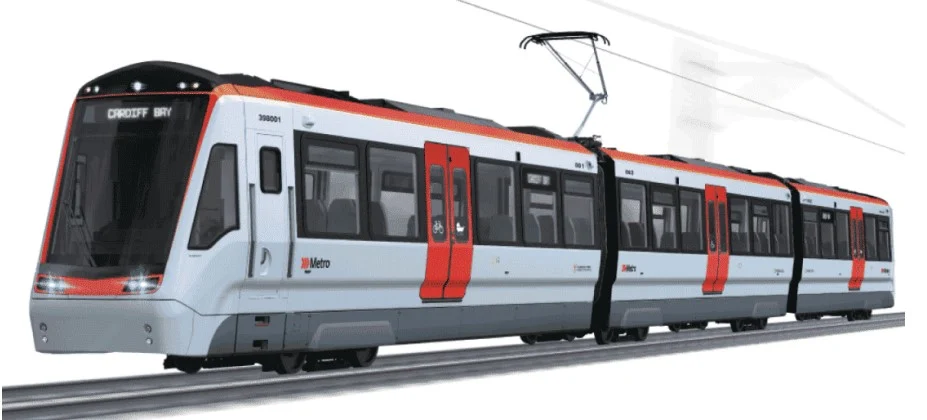
Transport programme manager Anna Graham explained that lobbying for heavy rail would have continued to address the challenges this faced by linking it to Ely Area Capacity Enhancements (EACE).
By opting for a refreshed rail ‘lite’ report, it removes for consideration of a service between March and Wisbech with direct services through to Cambridge.
Ms Graham said a business case completed two years ago had concluded a “heavy rail, with a two trains per hour service direct to Cambridge from Wisbech, and a centrally located station, would be a viable option”.
And it was agreed that Network Rail would follow this up with a review of the existing work and assess options for the Wisbech to March line.
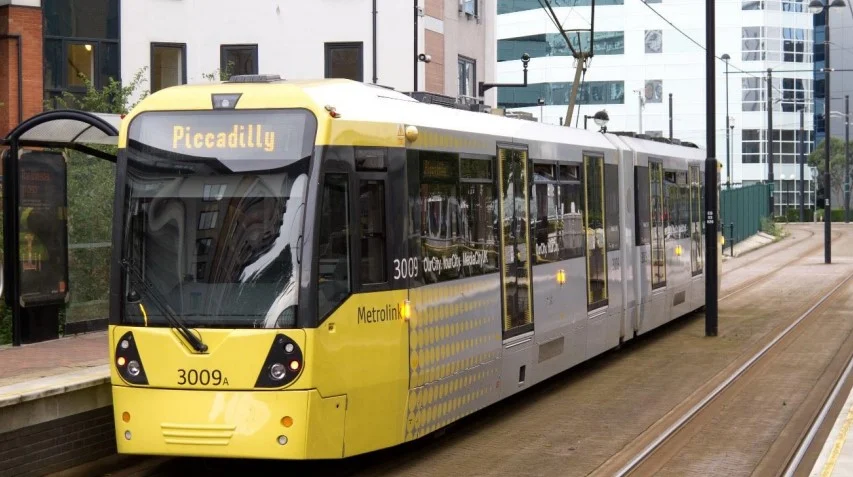
“It was intended the outcome of this work would coincide with the results of the Ely Area Capacity Enhancements (EACE) Outline Business Case,” Ms Graham said.
“Significantly, however, Network Rail recommended removing assumptions about EACE.
“The Wisbech to Cambridge 2020 business case assumed that EACE would provide the necessary infrastructure upgrades to enable increased services to Cambridge and as a result these costs were not included within the Wisbech to Cambridge business case.
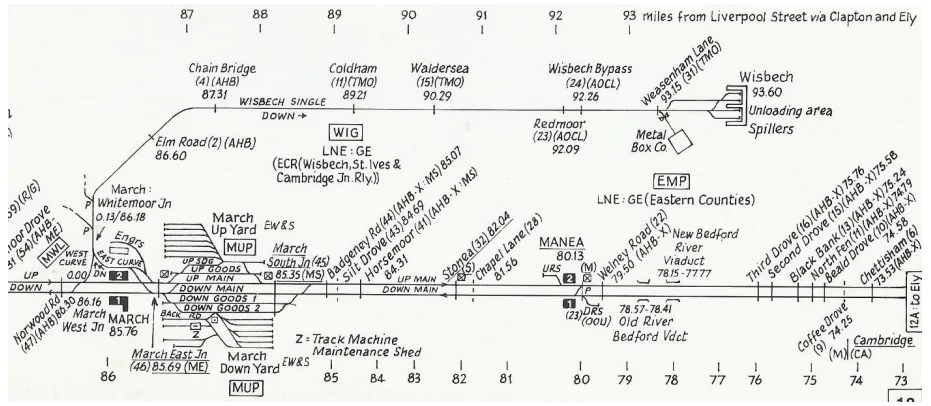
She said: “In Network Rail’s view this assumption should not have been included and therefore all costs required for Wisbech to Cambridge should be part of the business case as a standalone project.
“It was also assumed that one train path may be available at Ely North Junction and a further train path could be sought through EACE.”
She added: “Network Rail’s work has shown that there is currently no capacity at Ely and securing future train paths is highly competitive and there is no guarantee the Wisbech to Cambridge would be successful
“Whilst the EACE outline business case demonstrates decarbonisation and connectivity benefits, it does, however, require a significant funding, with a total cost of over £450 million.”
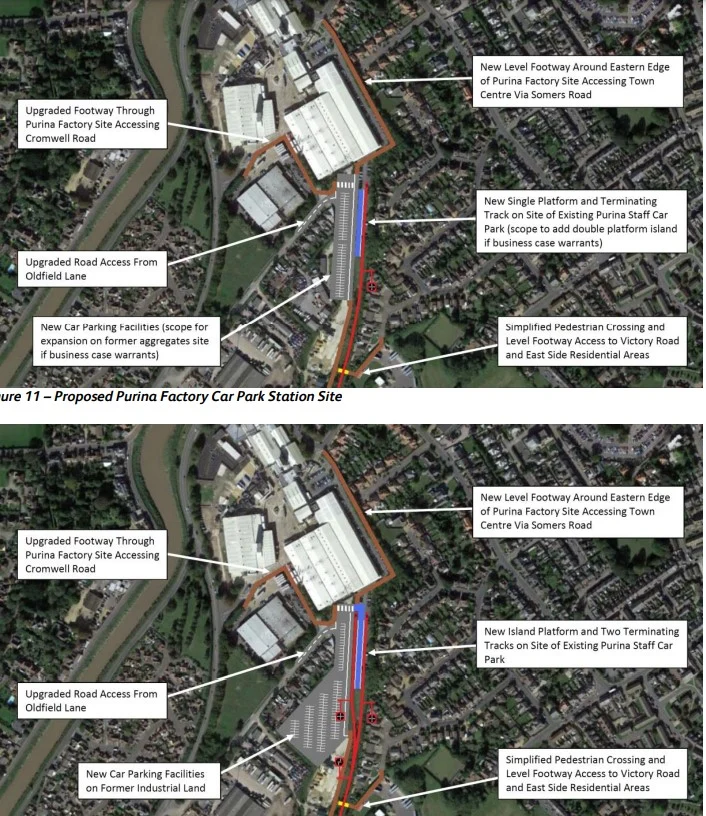
Its further complicated by the fact that the Government have not yet announced the next steps for EACE.
Network Rail’s review of the 2020 Wisbech Rail Business Case also noted that:
1: The passenger demand figures are different – higher – to those that have been prepared for the Ely Area Capacity Enhancement business case.
2: The assessment of cost for each mode option needed greater detail
3: Further detail around timetabling at Cambridge would be needed.
But the news is not all grim
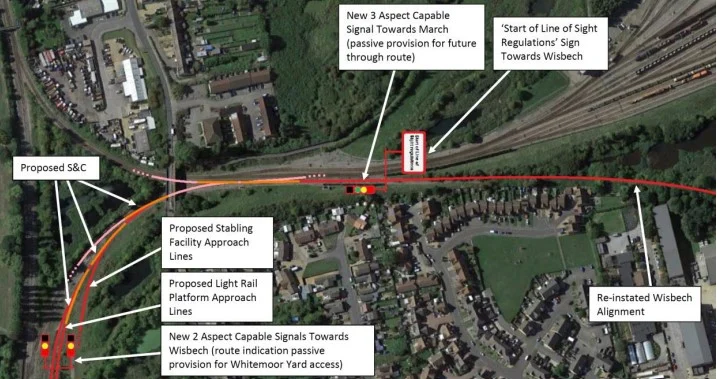
In the interim Network Rail also produced a feasibility study for light rail and this has won tentative support from the Department for Transport.
The report concluded that there is potential for a light rail passenger operation between March and Wisbech highlighting Tram-Train or Very Light Rail could be used.
“However, economic assessment of each light rail mode and a potential autonomous pod initiative were not provided within the report and would require further development to understand Benefit Cost Ratios,” said Ms Graham.
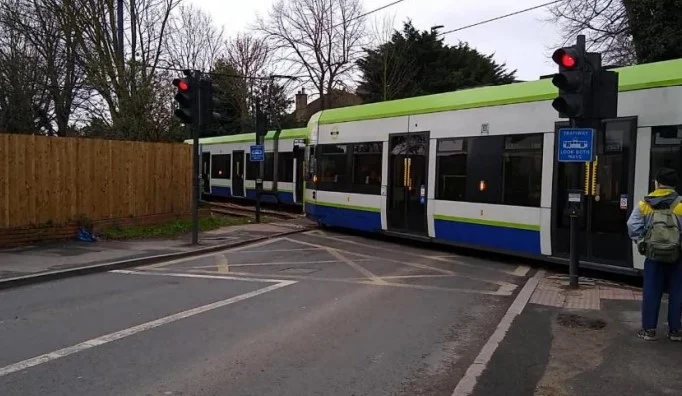
MrCrompton 33012)
“The Network Rail review concluded that lower cost light rail may offer a more credible transport solution and recommended further work be undertaken to examine light rail options.”
An initial proposal for Wisbech Rail next steps outlined an approach which included the development of a business case for a service between Wisbech and March and sought to develop light rail to an outline business case standard.
Ms Graham said Fenland District Council and local members “agreed that transport connectivity for Wisbech was a priority, however, heavy rail continued to be supported”.
Meanwhile Network Rail remains sceptical of a heavy rail option.
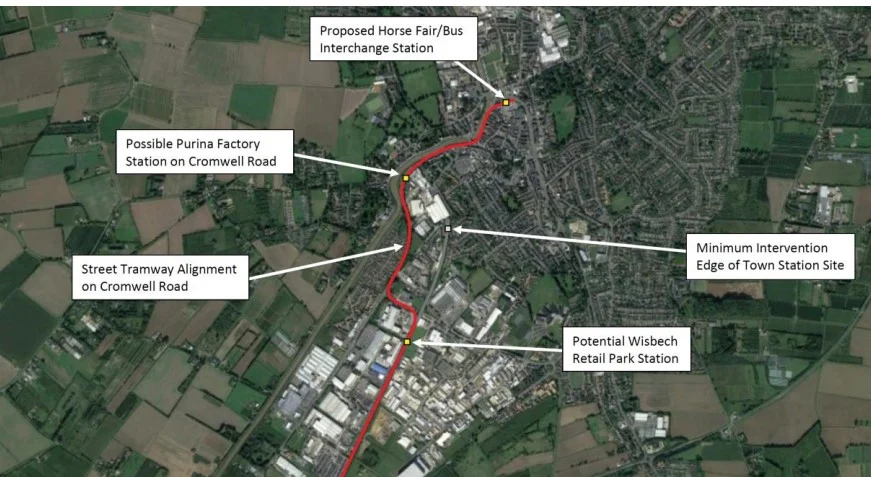
Its assessment of studies already undertaken conclude that “demand modelling is limited and there is insufficient evidence to support a heavy rail solution.
“The reports demonstrate a desire to facilitate freight services, without providing any clarity on the services required or that the potential market for freight services exists”.
Network Rail, whilst concluding that these studies conclude that heavy rail is a viable option, “lower cost light rail may offer a more credible solution.
“It is recommended that further work be undertaken to examine the light rail option”.
It adds: “The light rail feasibility study concludes that there is potential for a light rail passenger operation between March and Wisbech.
“The assessment of suitable rolling stock types concludes that, Tram; Tram-Train or Very Light Rail (VLR) vehicles could be used.
“The choice of rolling stock being subject to the specification of the short- and long-term service aspirations.
“The study further concludes that in consideration of the client’s specification a tram-train solution appears the best credible light rail option.
“Tram-train would enable future operation on both the national rail network and any on-street operation into Wisbech town centre or to the Garden Town.
“On the basis that light rail is considered a credible and feasible option further work is recommended to examine the options in more detail and to develop cost estimates to assist the business case for reopening the line.”
The seven-mile March to Wisbech railway was opened in 1847 with passenger services operating until 1968.
Freight services continued to run until 2000. Since 2000 the line has remained in a mothballed, non-operational condition.
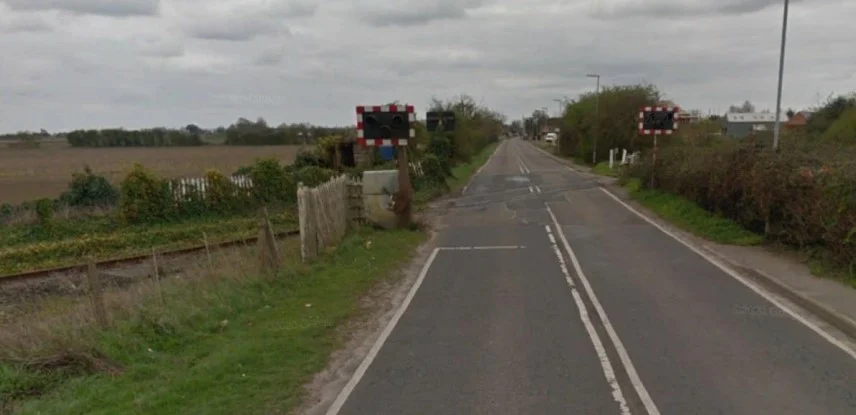
Network Rail’s light rail team considered the options for adopting suitable light rail technology and operational solutions.
Key infrastructure aspects considered by the review include:
The cost-effective solutions for the numerous level crossings under light rail operation
Options for an on-street route into Wisbech town centre
The location of a terminus station at Wisbech
The required alterations at March Station and connections to the main line
*CAPCA has £5.7 million in its medium-term financial planning (MTFP) budget, subject to approval, for Wisbech Rail in 2022/23.
A CAPCA spokesperson says the new option agreed “is quicker and cheaper to produce than a complete business case.
“This vote by the committee means that plans to improve Wisbech’s transport links can move ahead, even in the face of the current uncertainty over track capacity at Ely”.
The spokesperson added: “Getting Wisbech better-connected came closer today when the Combined Authority’s transport and infrastructure committee decided to move forward with an Options Assessment Report analysing the costs and benefits of different types of connection.
“The options to be looked at will include both light and heavy rail modes and would centre on a service initially operating between Wisbech and March but with an eye to creating an ultimate link into Cambridge.
“The service would not depend on improvements to free up the Ely rail bottleneck.
“The Government has not yet made any announcement in regard to funding for the Ely Area Capacity Enhancement scheme.”


